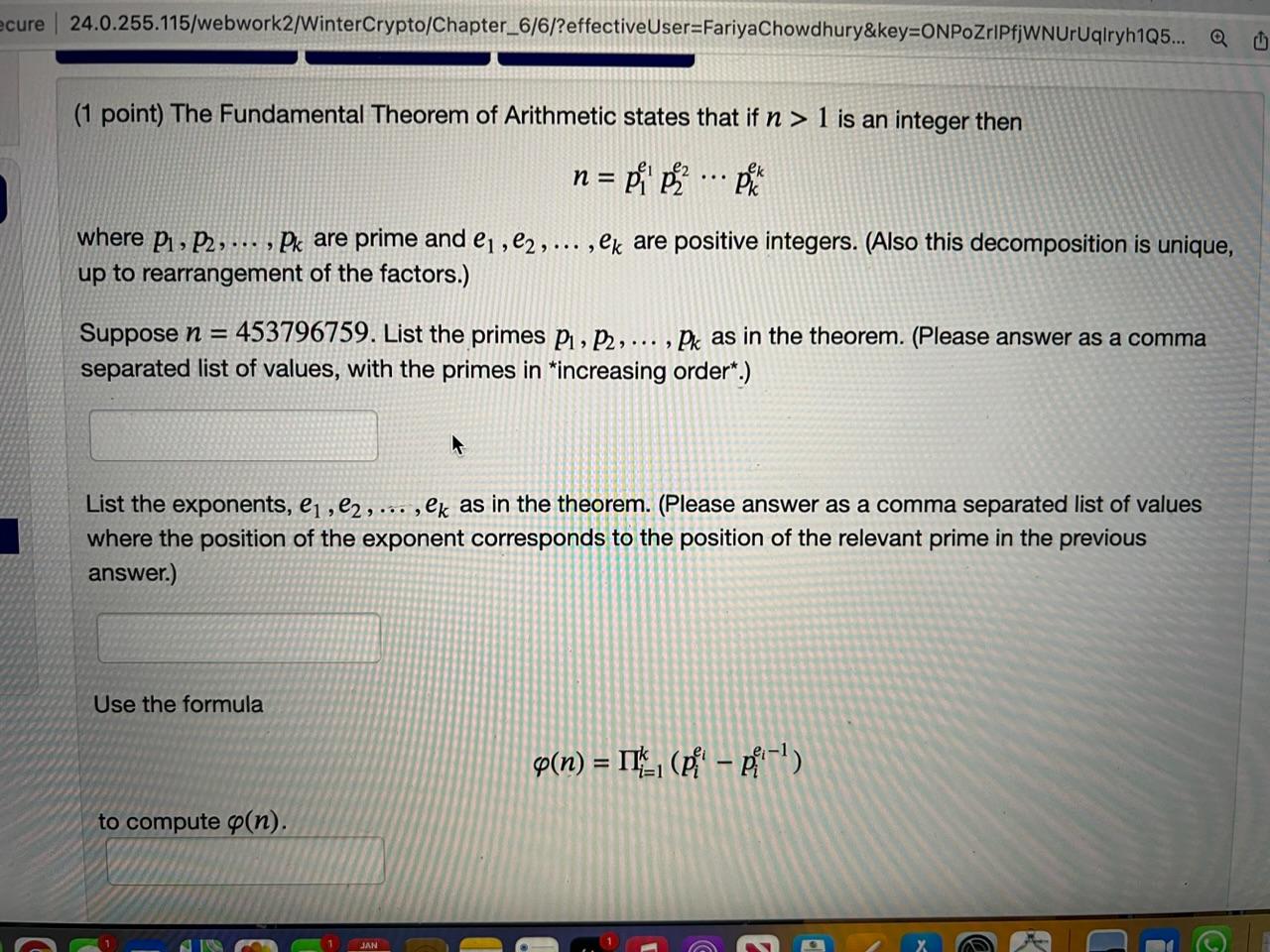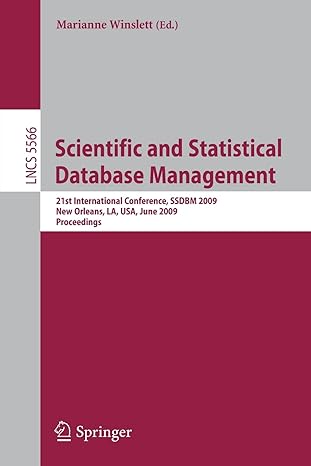Answered step by step
Verified Expert Solution
Question
1 Approved Answer
(1 point) The Fundamental Theorem of Arithmetic states that if n>1 is an integer then n=p1e1p2e2pkek where p1,p2,,pk are prime and e1,e2,,ek are positive integers.

Step by Step Solution
There are 3 Steps involved in it
Step: 1

Get Instant Access to Expert-Tailored Solutions
See step-by-step solutions with expert insights and AI powered tools for academic success
Step: 2

Step: 3

Ace Your Homework with AI
Get the answers you need in no time with our AI-driven, step-by-step assistance
Get Started


